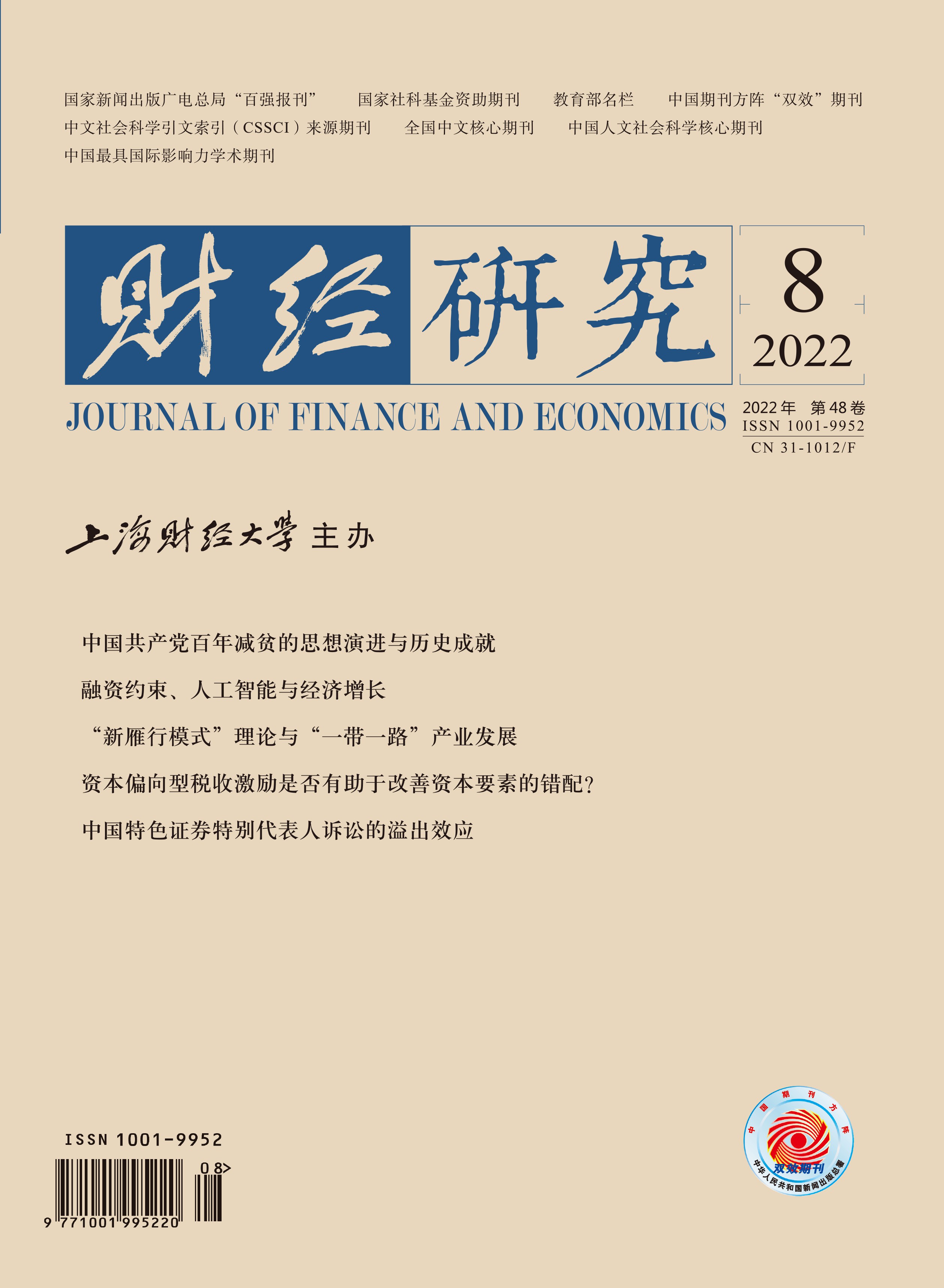随着老龄化进程加速,中国家庭照料负担持续加重,并不断向市场转移。老年人的社会化照料需求达到历史峰值,照料经济的持续健康发展显得愈加重要。然而,调查数据显示,养老护理员的工资水平明显低于其他照料工作者,严重制约了劳动力进入,照料赤字问题突出。过往研究大都关注照料型与非照料型工作者之间的工资差异,忽略了照料市场的内部工资分化。文章聚焦于照料经济内部,使用2019年中国四个城市家政工人调查数据,对老年照料工作的低回报率进行了分析。结果发现:(1)与其他家政工相比,养老护理员的工资分布较为集中,且上升空间有限,存在明显的“天花板效应”。(2)排除职业自选择偏误后,养老护理员与家务员的工资差异不显著;与育儿嫂存在10%—15%的工资差异,其中职业歧视解释了月工资差异的76%和小时工资差异的40%。(3)家政培训只对育儿嫂和家务员具有积极的收入效应,而对养老护理员无显著影响,这验证了老年照料工作存在基于职业隔离的技能贬值。文章为解决老年照料的劳动力赤字,为照料市场实现“提质扩容”提供了实践方向。根据研究结论,文章建议应提高养老护理员的技能认可和职业地位,发展科学高效的现代化照料模式。
中国家政行业老年照料工作的低回报率:禀赋差异还是职业歧视?
摘要
参考文献
2 唐斌斌. 被访者驱动抽样:基于多种方法的估计诊断[J]. 社会,2022,(1):212−242. DOI:10.3969/j.issn.1004-8804.2022.01.008
7 Altman M, Pannell K. Policy gaps and theory gaps: Women and migrant domestic labor[J]. Feminist Economics,2012,18(2): 291−315. DOI:10.1080/13545701.2012.704149
8 Anderberg D. Self-enforcing exchange among generations: Implications for consumption and mobility[J]. European Economic Review,2007,51(7): 1813−1827. DOI:10.1016/j.euroecorev.2006.11.007
9 Barron D N, West E. The financial costs of caring in the British labour market: Is there a wage penalty for workers in caring occupations?[J]. British Journal of Industrial Relations,2013,51(1): 104−123. DOI:10.1111/j.1467-8543.2011.00884.x
10 Behtoui A, Boréus K, Neergaard A, et al. Why are care workers from the global south disadvantaged? Inequality and discrimination in Swedish elderly care work[J]. Ethnic and Racial Studies,2020,43(16): 155−174. DOI:10.1080/01419870.2020.1734220
11 Budig M J, Hodges M J, England P. Wages of nurturant and reproductive care workers: Individual and job characteristics, occupational closure, and wage-equalizing institutions[J]. Social Problems,2019,66(2): 294−319. DOI:10.1093/socpro/spy007
12 Budig M J, Misra J. How care-work employment shapes earnings in cross-national perspective[J]. International Labour Review,2010,149(4): 441−460. DOI:10.1111/j.1564-913X.2010.00097.x
13 Connelly R, Dong X Y, Jacobsen J, et al. The care economy in post-reform China: Feminist research on unpaid and paid work and well-being[J]. Feminist Economics,2018,24(2): 1−30. DOI:10.1080/13545701.2018.1441534
14 Davies C. Competence versus care? Gender and caring work revisited[J]. Acta Sociologica,1995,38(1): 17−31. DOI:10.1177/000169939503800103
15 Donath S. The other economy: A suggestion for a distinctively feminist economics[J]. Feminist Economics,2000,6(1): 115−123. DOI:10.1080/135457000337723
16 Dong X Y, Feng J, Yu Y Y. Relative pay of domestic eldercare workers in Shanghai, China[J]. Feminist Economics,2017,23(1): 135−159. DOI:10.1080/13545701.2016.1143108
17 England P. Emerging theories of care work[J]. Annual Review of Sociology,2005,31: 381−399. DOI:10.1146/annurev.soc.31.041304.122317
18 England P, Budig M, Folbre N. Wages of virtue: The relative pay of care work[J]. Social Problems,2002,49(4): 455−473. DOI:10.1525/sp.2002.49.4.455
19 England P, Herbert M S, Kilbourne B S, et al. The gendered valuation of occupations and skills: Earnings in 1980 census occupations[J]. Social Forces,1994,73(1): 65−100. DOI:10.2307/2579918
20 Folbre N, Nelson J A. For love or money—or both?[J]. Journal of Economic Perspectives,2000,14(4): 123−140. DOI:10.1257/jep.14.4.123
21 He G Y, Wu X G. Foreign domestic helpers hiring and women’s labor supply in Hong Kong[J]. Chinese Sociological Review,2019,51(4): 397−420. DOI:10.1080/21620555.2019.1630814
22 Jokela M. Patterns of precarious employment in a female-dominated sector in five welfare states: The case of paid domestic labor sector[J]. Social Politics,2019,26(1): 30−58. DOI:10.1093/sp/jxy016
23 Kilbourne B S, England P, Farkas G, et al. Returns to skill, compensating differentials, and gender bias: Effects of occupational characteristics on the wages of white women and men[J]. American Journal of Sociology,1994,100(3): 689−719. DOI:10.1086/230578
25 Lightman N. Discounted labour? Disaggregating care work in comparative perspective[J]. International Labour Review,2017,156(2): 243−267. DOI:10.1111/ilr.12001
26 Melly B. Decomposition of differences in distribution using quantile regression[J]. Labour Economics,2005,12(4): 577−590. DOI:10.1016/j.labeco.2005.05.006
27 Nelson J A. Of markets and martyrs: Is it OK to pay well for care?[J]. Feminist Economics,1999,5(3): 43−59. DOI:10.1080/135457099337806
28 Oaxaca R. Male-female wage differentials in urban labor markets[J]. International Economic Review,1973,14(3): 693−709. DOI:10.2307/2525981
30 Parkin P. Marxism and class theory: A bourgeois critique[M]. New York: Columbia University Press, 1979.
31 Pietrykowski B. The return to caring skills: Gender, class, and occupational wages in the US[J]. Feminist Economics,2017,23(4): 32−61. DOI:10.1080/13545701.2016.1257142
32 Song Y P, Dong X Y. Childcare costs and migrant and local mothers’ labor force participation in urban China[J]. Feminist Economics,2018,24(2): 122−146. DOI:10.1080/13545701.2017.1398405
33 Suleman F, Da Conceição Figueiredo M. Wage differentials within a female-dominated occupation: Domestic workers in informal and flexible jobs in Portugal[J]. International Labour Review,2018,157(1): 129−152. DOI:10.1111/ilr.12065
34 Weber M. Economy and society: An outline of interpretive sociology[M]. Berkeley: University of California Press, 1978.
35 Weeden K A. Why do some occupations pay more than others? Social closure and earnings inequality in the United States[J]. American Journal of Sociology,2002,108(1): 55−101. DOI:10.1086/344121
36 Williams F. Migration and care: Themes, concepts and challenges[J]. Social Policy and Society,2010,9(3): 385−396. DOI:10.1017/S1474746410000102
37 Yu J, Xie Y. Recent trends in the Chinese family: National estimates from 1990 to 2010[J]. Demographic Research,2021,44: 595−608. DOI:10.4054/DemRes.2021.44.25
38 Yuval-Davis N. Intersectionality and feminist politics[J]. European Journal of Women’s Studies,2006,13(3): 193−209. DOI:10.1177/1350506806065752
引用本文
杨博文. 中国家政行业老年照料工作的低回报率:禀赋差异还是职业歧视?*[J]. 财经研究, 2022, 48(8): 94-108.
导出参考文献,格式为:
下一篇:机器人应用对就业转移的影响





 6056
6056  4957
4957

